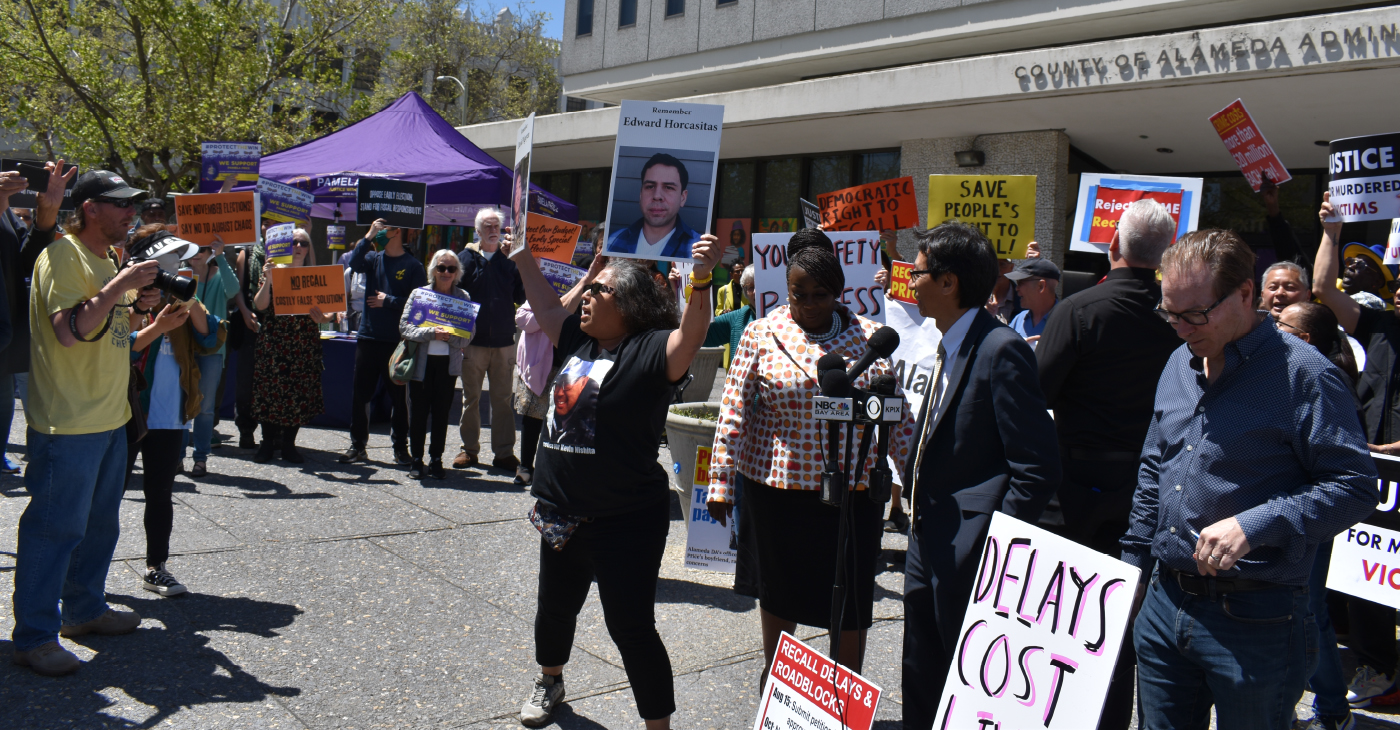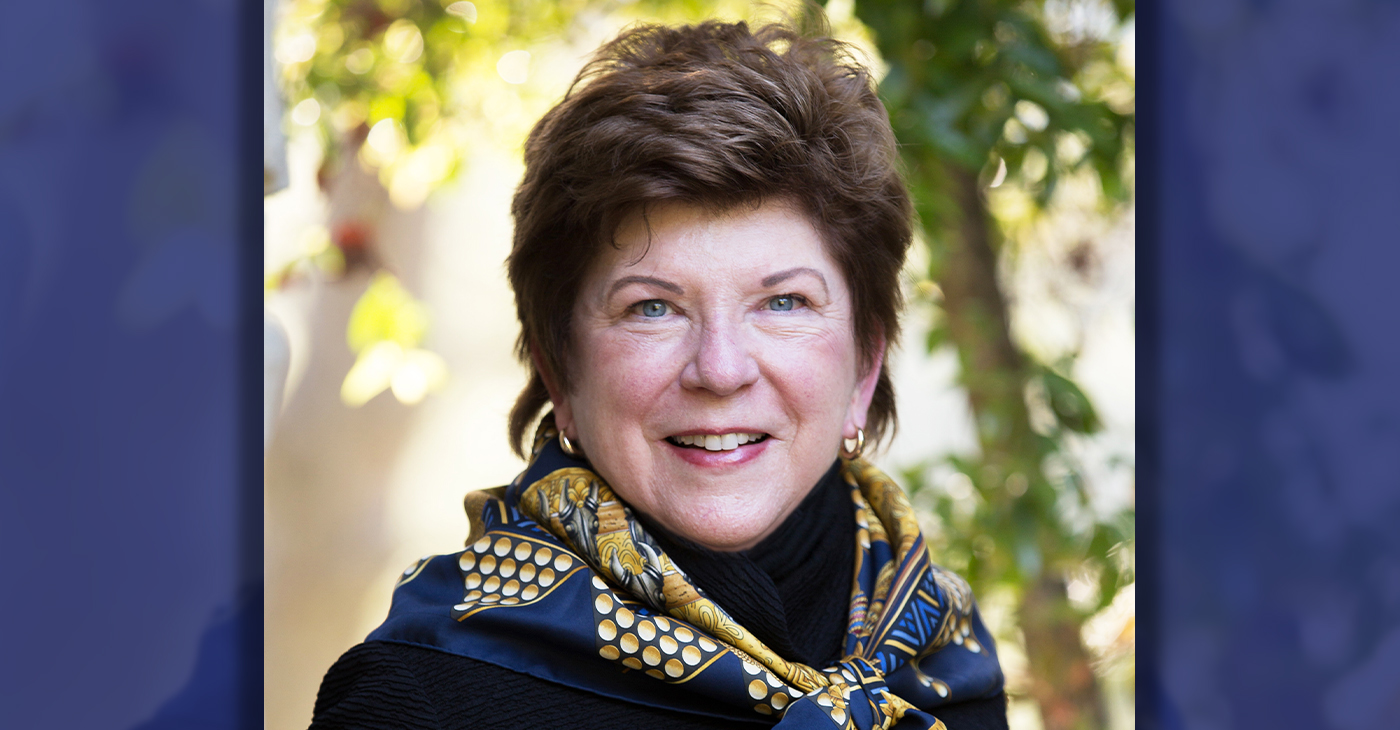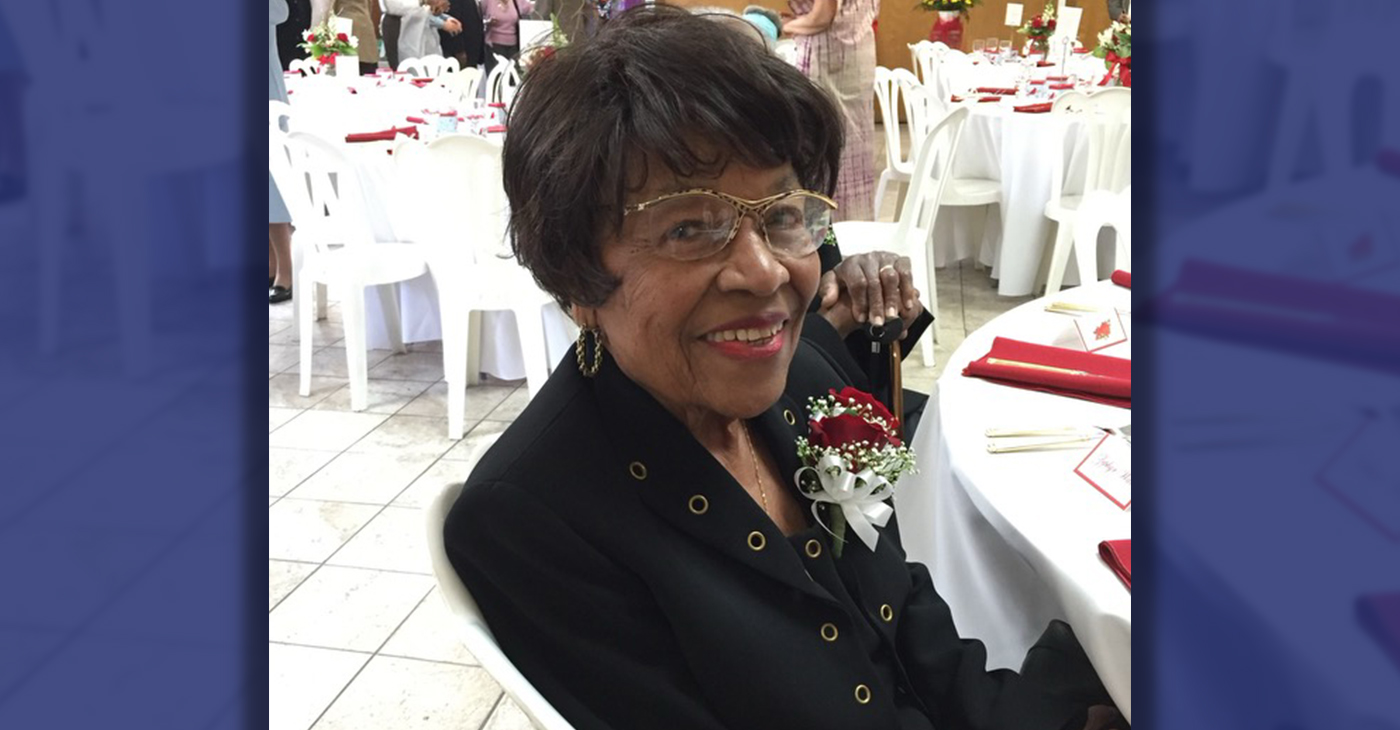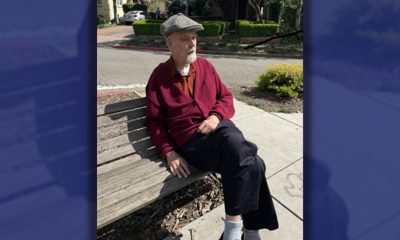Bay Area
S.F. Mayor Announces Expansion of Treatment Beds for People Suffering from Mental Health, Substance Use Disorders
As part of the Breed’s budget investments, San Francisco will create over 400 new treatment beds, a 20% expansion

Mayor London N. Breed and the San Francisco Department of Public Health (DPH) announced on July 21 that San Francisco is implementing the expansion of over 400 new treatment beds for people experiencing mental health and substance use issues. This expansion of treatment beds will provide more options for people in need to receive appropriate services that match their situation, while also providing San Francisco’s new Street Response Teams with additional placements for clients they interact with.
The expansion plans represent a 20% increase in the City’s residential treatment capacity. In 2021 alone, San Francisco will see 140 new beds opened, with significant progress made toward filling the gaps in critical needs areas identified in the 2020 Behavioral Health Bed Optimization Report. Since Breed took office, San Francisco has added more than 100 treatment beds across San Francisco’s system of care.
“This is an unprecedented expansion of our system of care and treatment for people with mental health and substance use disorders,” said Breed. “We are responding with the urgency that this crisis deserves, while saving millions of dollars by removing bottlenecks in the system so that people can move into lower, less costly levels of care when they are ready. Each one of these placement facilities takes a tremendous amount of time and effort to make happen, but we should see the benefits for years to come.”
These new treatment beds will allow San Francisco’s new street outreach teams, including the Street Crisis Response Teams and the Street Wellness Response Teams, with additional placements that can serve the clients they interact with.
There are now five Street Crisis Response Teams operating in San Francisco, responding to about 500 calls monthly. Breed included funding in this year’s budget for five Street Wellness Response Teams, which will begin to respond to “wellness check” calls, which total roughly 17,000 annually.
The expansion effort is guided by recommendations from the Behavioral Health Bed Optimization Project report in 2020, as well as the Mental Health SF legislation in 2019, and utilization data that identified the types of treatment in highest need. These new beds and facilities are at various stages of development, with some ready for opening in 2021 and others in stages of planning and design.
“Coming out of COVID, our biggest public health crisis is the thousands of people living on our streets with untreated mental health and substance use disorders. Getting these sick people off the streets and into appropriate treatment beds will save lives and make San Francisco a safer and healthier place for all,” said District 8 Supervisor Rafael Mandelman.
“People who are mentally ill and addicted to drugs need immediate access to treatment and care. Expanding our city’s treatment beds and Street Crisis Response teams through Mental Health SF will better ensure services are available, accessible and effective,” said District 6 Supervisor Matt Haney. “Fully funding Mental Health SF was a top priority for us during this year’s budget process, and we worked together to expand much needed treatment beds, care coordination, and street intervention. These treatment beds cannot come soon enough.”
“This expansion of available treatment facilities is an essential part of fully implementing Mental Health SF. We must have places for people in crisis to get the care they desperately need and to stop the revolving door that returns people to the streets,” said District 9 Supervisor Hillary Ronen.
“We are not only improving patient flow so that individuals receive timely care and treatment, we are also developing innovative models of care to target the unique needs we see in the community,” said Dr. Naveena Bobba, Deputy Director of Health. “The investments we are making in the expansion in our residential care and treatment system will be critical to help us meet our goal for rapid access to recovery-oriented care and treatment.”
Several innovative types of treatment and care programs designed to meet the diverse needs of people with behavioral health challenges are being developed, including:
- The 20-bed SOMA RISE Center will open in the fall of 2021 as part of the City’s response to the drug overdose crisis. It will offer a safe indoor space for people who have used methamphetamine or other substances, monitor their health while intoxicated, and connecting them with other health and social services.
- A 10-bed residential treatment facility specifically designed to treat young adults with serious mental health and/or substance use disorders is under design.
- Neighborhood-based psychiatric respite facilities for people experiencing homelessness to shelter in a safe, supportive environment where they can also access ongoing care.
Meanwhile, as board-and-care homes shutter due to the escalating costs of housing, DPH is also in active negotiations to acquire facilities to accommodate at least 73 residential care beds to support people with mental health issues who require assistance with activities of daily living. Some of these will support the elderly.
Critically, DPH is also creating 140 new beds to support people leaving residential substance use treatment – a last step in skill-building before independent housing.
In May, DPH alongside community partners PRC/Baker Places, the Salvation Army, and Tipping Point Community opened Hummingbird Valencia, a psychiatric respite facility for people experiencing homelessness in the Mission and Castro neighborhoods. It is now operating at full capacity with 30 overnight beds and 20 daytime drop-in spaces.
For the latest update on San Francisco’s residential care and treatment expansion, go to: sf.gov/residential-care-and-treatment.
San Francisco has also made available a daily update of available mental health and substance use treatment beds at: FindTreatmentSF.org.
The San Francisco Mayor’s Office of Communications is the source of this story.
Alameda County
Board of Supervisors Accepts Certification of Signatures, Will Schedule Recall Election May 14
The Alameda Board of Supervisors unanimously accepted the certification of the results of the valid signatures submitted for the recall of District Attorney Pamela Price on Tuesday evening. The Board will set the election date at a special meeting on May 14. Before the meeting, recall proponents and opponents held separate press conferences to plead their cases to the Board and residents of Alameda County.

By Magaly Muñoz
The Alameda Board of Supervisors unanimously accepted the certification of the results of the valid signatures submitted for the recall of District Attorney Pamela Price on Tuesday evening. The Board will set the election date at a special meeting on May 14.
Before the meeting, recall proponents and opponents held separate press conferences to plead their cases to the Board and residents of Alameda County.
Price, who up until this point has made little public comment about the recall, held her press conference in Jack London to announce that the California Fair Political Practices Commission has opened an investigation into the finances of the Save Alameda For Everyone (SAFE) recall campaign.
The political action committee (PAC), Reviving the Bay Area, has been the largest contributor to the SAFE organization and has allegedly donated over half a million dollars to the recall efforts.
“Between September 2023 and November 2023, [Revive the Bay Area] donated approximately $578,000 to SAFE without complying with the laws that govern all political committees in California,” Price said.
Price accused the recall campaigns of using irregular signature-gathering processes, such as paying gatherers per signature, and using misleading information to get people to sign their petitions.
SAFE held their own press conference outside of the Alameda County Administration Building at 1221 Oak St. in Oakland, once again calling for the Board to certify their signatures and set a date for the recall election.
Their press conference turned contentious quickly as Price’s “Protect the Win” supporters attempted to yell over the SAFE staff and volunteers. “Stop scapegoating Price” and “Recall Price” chants went on for several moments at a time during this event.
Families of victims urged the Board to think of their loved ones whose lives are worth much more than the millions of dollars that many opponents of the recall say is too much to spend on a special election.
The Registrar of Voters (ROV) estimates the special election could cost anywhere from $15 to $20 million, an amount that is not in their budget.
The Board was presented with several options on when and how to conduct the recall election. They have to set a date no less than 88 days or more than 125 days after May 14, meaning the date could fall anywhere from late July to September.
But the County charter also states that if a general election takes place within 180 days of their scheduling deadline, the Board could choose to use the November ballot as a way to consolidate the two events.
In the event that Price is recalled, the Supervisors would appoint someone to fill the vacancy, though neither the County nor the California charter specifies how long they would have to pick a replacement.
The appointee would serve as district attorney spot until the next election in 2026. Afterwards, either they, if they run and win, or a newly elected candidate would serve the rest of Price’s six-year term until 2029. Price is unique as the only district attorney wo serves a term of six years.
The Board acknowledged that they knew last fall that this recall would come with its own set of complications when Measure B, which changed the local recall charter to match California’s, was first brought to their consideration.
Supervisors Nate Miley and David Haubert opposed discussing the measure, stating that the public would think that the Board was attempting to influence the recall campaign that had already taken off months prior.
“I think ultimately this feels like it’s going to end up in court, one way or the other, depending on who files what,” Haubert said.
Price’s legal team told the Post that the district attorney intended to consider all legal options should the recall election take place.
Miley stated that while he was in support of the amendment to the charter, he did not think it was right to schedule it for the March ballot as it would ultimately cause confusion for everyone involved.
“It has produced some legal entanglements that I think, potentially, could’ve been avoided,” Miley said.
Bay Area
Obituary: Former California Education Superintendent Delaine Eastin Passes at 76
Delaine Eastin, who served as a former state Assemblymember representing parts of Santa Clara and Alameda County — and the first woman elected as State Superintendent of Public Instruction — died at age 76 on April 23. Eastin passed away from complications caused by a stroke.

By California Black Media
Delaine Eastin, who served as a former state Assemblymember representing parts of Santa Clara and Alameda County — and the first woman elected as State Superintendent of Public Instruction — died at age 76 on April 23.
Eastin passed away from complications caused by a stroke.
Known for her power of persuasion, Eastin used her influence to be a champion for bipartisan issues that helped raise academic standards, lower class sizes, and emphasize the importance of conserving nature and the environment in schools.
Former Assembly Speaker Willie Brown and fellow legislative colleagues said that Eastin was in demand on the speech circuit while serving as a legislator.
“Few could engender the kind of emotion and passion she delivered in every speech,” Brown said.
State superintendent Tony Thurmond called Eastin a trailblazer who inspired fellow public servants.
“California lost an icon in our school system today. Delaine Eastin’s legacy as a trailblazer in public education will forever inspire us. Her unwavering dedication to California students — from championing Universal Preschool and the “A Garden in Every School” program to honoring our educators by establishing the California Teachers of the Year Awards — has left an indelible mark on our state’s educational landscape,” said Thurmond.
Thurmond honored Eastin’s legacy at the California Teacher of the Year Program, an honor that she established during her time as superintendent.
Bay Area
Zefer O’Neal Ward, 105
Zefer O’Neal Ward transitioned from this life on Feb. 19. She was 105 years old. A native of Pine Bluff, Arkansas, Zefer was the sixth of George and Zora O’Neal’s 14 children. Her joy of singing began at home at the tender age of 4 by being placed on a table and being asked to sing a song. By age 13, she was a member and directress of the youth choir at St. Paul Baptist Church. Zefer attended Merrill High School and Arkansas State College in Pine Bluff, Arkansas.

By Post Staff
Zefer O’Neal Ward transitioned from this life on Feb. 19. She was 105 years old. A native of Pine Bluff, Arkansas, Zefer was the sixth of George and Zora O’Neal’s 14 children. Her joy of singing began at home at the tender age of 4 by being placed on a table and being asked to sing a song. By age 13, she was a member and directress of the youth choir at St. Paul Baptist Church. Zefer attended Merrill High School and Arkansas State College in Pine Bluff, Arkansas.
In 1945, Zefer made her home in Oakland, California, where she established deep roots. It was in 1950 that she married the late William “Bill” Ward. That same year, she joined Downs Memorial Methodist Church under the esteemed leadership of Rev. Roy C. Nichols, where her angelic voice soon became a cornerstone of the church’s 8:30 a.m. worship service.
She went on to lend her voice and talents to various choirs in the church including the gospel choir and the formulation of the children’s choir under the guidance of the late Rev. Amos Cambric Jr.
Zefer’s gift of song extended far beyond the walls of her church. For decades, she brought solace and inspiration to countless souls through her performances at funerals, weddings, concerts, conventions and church programs throughout the Bay Area.
Her unparalleled artistry even graced the ears of the late Robert F. Kennedy during a performance at the University of California, Berkeley. To quote her, “I have been involved with singing all my life. Singing is a joy for me. Every time I sing, I pray that I will bring joy to someone. I know that the Lord has used me to touch and bless someone … singing is my life, my joy.”
Surviving Zefer are her two children; Norma Ward-Sledge, CEO and co-founder of Progressive Transitions, Inc. a program in Oakland that has become a beacon of hope for women and families affected by domestic violence and human trafficking; and William Wilson, of Raleigh, North Carolina, a retired business owner. She also leaves behind her sister Minnie O’Neal of Dupont, Washington, two grandsons both of Raleigh, North Carolina and a host of nieces and nephews.
In lieu of flowers, the family kindly requests contributions be made to Progressive Transitions, Inc., an organization that Zefer passionately supported.
There will be a “Memorial Tribute to Zefer” at 11 a.m. on Saturday, June 1 at Downs Memorial United Methodist Church, 6026 Idaho St. in Oakland.
A follow-up event, “Celebrating the Legacy of Lady Z,” will be held on June 22 at Z Café, 2735 Broadway Oakland at 2 p.m.
Please RSVP for this event via text or call (510) 917-0666.
-

 Community2 weeks ago
Community2 weeks agoFinancial Assistance Bill for Descendants of Enslaved Persons to Help Them Purchase, Own, or Maintain a Home
-

 Activism4 weeks ago
Activism4 weeks agoOakland Post: Week of April 3 – 6, 2024
-

 Business3 weeks ago
Business3 weeks agoV.P. Kamala Harris: Americans With Criminal Records Will Soon Be Eligible for SBA Loans
-

 Activism3 weeks ago
Activism3 weeks agoOakland Post: Week of April 10 – 16, 2024
-

 Community3 weeks ago
Community3 weeks agoAG Bonta Says Oakland School Leaders Should Comply with State Laws to Avoid ‘Disparate Harm’ When Closing or Merging Schools
-

 Community2 weeks ago
Community2 weeks agoOakland WNBA Player to be Inducted Into Hall of Fame
-

 Community2 weeks ago
Community2 weeks agoRichmond Nonprofit Helps Ex-Felons Get Back on Their Feet
-

 Community2 weeks ago
Community2 weeks agoRPAL to Rename Technology Center for Retired Police Captain Arthur Lee Johnson




















































